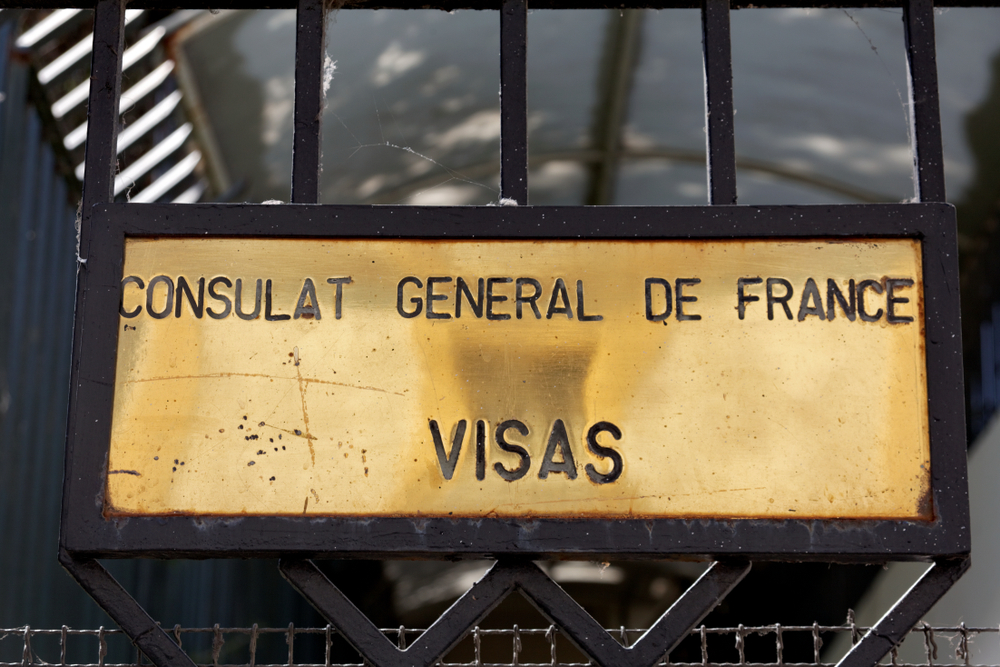
France announced on Tuesday that it would cut back the number of visas granted for Algerian, Tunisian and Moroccan citizens.
Although LREM’s French Politician and spokesman Gabriel Attal admitted it is a “drastic and unprecedented decision”, it is also a step that the European country finds imperative to prevent illegal immigration from these territories.
The French government accuses Maghreb countries of failing to make an effort to repatriate nationals whose visas have been denied. Reportedly, President Emmanuel Macron had a dialogue with Algerian, Tunisian, and Moroccan representatives, but they didn’t come to an agreement. “There were threats, and today we’re carrying out those threats,” Attal said.
When French authorities decline a visa request, the immigrant’s home country must provide a consular pass to let them expel the individual —something that Algeria, Morocco, and Tunisia allegedly refuse to do. French media reported that because of this, they could only send back home 22 Algerians, 80 Moroccans, and 131 Tunisians in the first semester of this year —when rejected visa requests were as high as 7,731, 3,301, and 3,424 for each country, respectively.
“We will reduce the number of visas very significantly,” Interior Minister Gerald Darmanin asserted in Paris on Wednesday.
France will reduce visas for Tunisia by almost a third and strictly halve them for Algeria and Morocco.
The Minister also said that the expelled North African citizens had committed crimes, had become “radicalised” or had no residence permit. “As long as you do not take back your nationals, we will not accept your nationals,” he declared in an interview with BFMTV, a French broadcaster.
Meanwhile, Europe 1 radio reported that Macron took this decision about a month ago, but only now it is being officially proclaimed and coming into play.
So are repercussions. Amar Belani, Special Envoy in charge of the Western Sahara issue and Arab Maghreb countries, described the measure as “disproportionate”, according to the state news agency APS. Algeria also summoned French ambassador Francois Gouyette to formally protest against “the unilateral decision of the French government”, which was taken without “prior consultation with the Algerian side, which calls into question its reasons and backgrounds.”
In Rabat, Foreign Minister Nasser Bourita told reporters that Macron’s resolution was “unjustified” and that it “does not reflect the reality of consular cooperation in the fight against irregular migration”. He cited 400 consular documents issued to Moroccan illegal immigrants in France and insisted that Morocco “has always acted responsibly on the issue of illegal migration”.
He argued that the only issue is that many expelled Moroccans refuse to take the coronavirus test that is required to enter the country. But Morocco still aims at “the necessary balance between facilitating the movement of people, whether students, businessmen and those wishing to benefit from medical services, and combating clandestine immigration”.
Tunisian authorities were less harsh and even conciliatory. They stated that “we are among countries that are cooperative in this domain, and we have excellent relations with France.”
Although French Minister Gerald Darmanin declared that this new policy is unrelated to next year’s presidential elections, it was enacted right after far-right politicians pressured President Macron to enforce migration laws. Migration itself is a key issue in the election campaign and something for which Macron is criticized.
Far-right presidential candidate Marine Le Pen, who is expected to face off against Macron in the elections, supported his decision, although she thinks that “he should’ve acted earlier”. Le Pen had already stated on France 2 television that if she won the elections, she would propose stricter migration and naturalization laws.
For the time being, it is still not known whether Macron will stand for re-election.